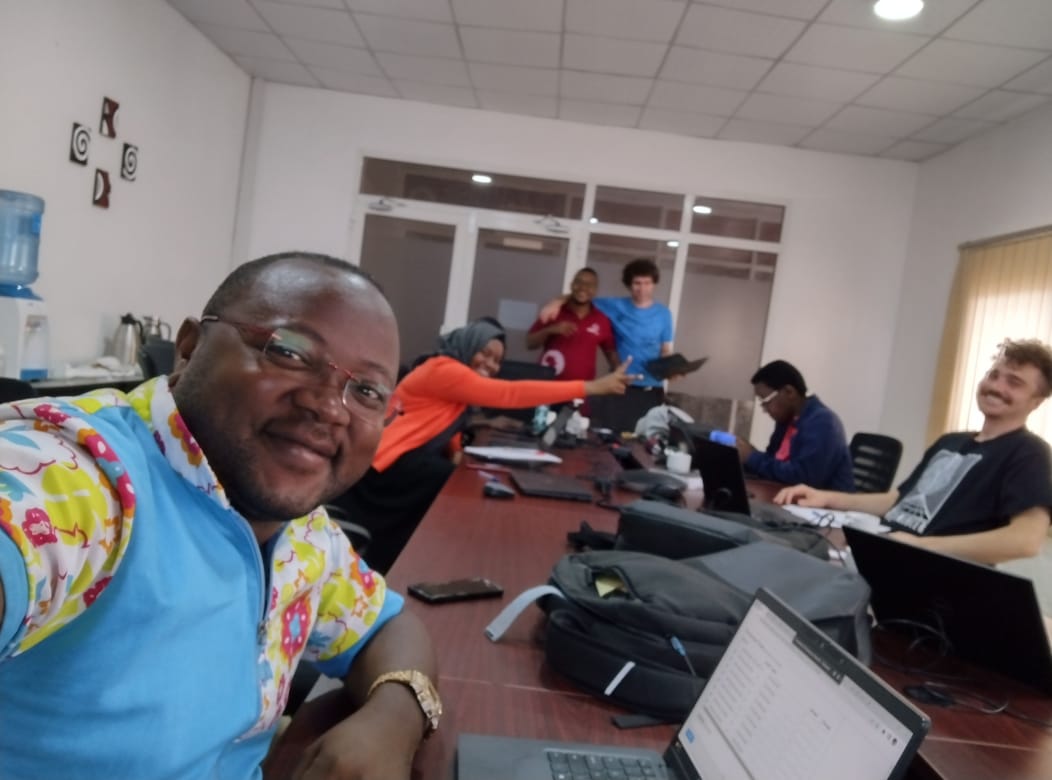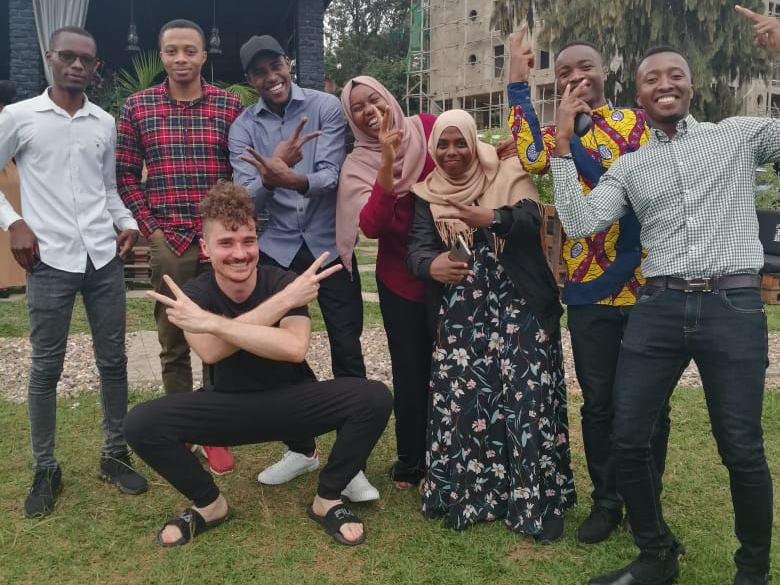What did you like best during your stay as a tutor at AIMS?
It was deeply meaningful and felt like making a difference. During my usual Ph.D. life – doing math, writing code, reading papers– I often question what I actually did of significance today (or this week or month or year). However, my tutorship at external page AIMS was the exact opposite experience: it was very clear that I was making a difference almost every day. I observed my students grow and overcome problems over short periods, moving from confusion to mastery over mathematical theory, from breaking down during practice talks to acing their master thesis defenses with confidence. My students worked very hard and became substantially better problem solvers, question-askers and communicators – better scientists. Some students far exceeded my expectations. Gloria for example predicted the impact of a larvicide spray intervention on the basic reproduction number of malaria, using a complex system of differential equations with parameters she estimated from empirical data. Luel, another student, combined two very complex deep learning models to generate realistic sounding speech from characters of the ancient Ethiopian language Ge`ez. Due to the intensity of the environment, I quickly formed meaningful bonds with many of my students. I was struck by how conscientious and social-environmentally aware the students are. Most had genuine personal ambitions to use mathematics, science and engineering to tackle challenges like global health or climate change. Many were exceedingly curious and opinionated, and dinner would often turn into heated debates over everything from politics, history and religion to sexuality and philosophy. My fellow tutors were incredibly welcoming (thank you Pascal, Zeinab, Prudence, Finlay, Stive, Ailin, Cornelie and Michel) and soon taught me that AIMS is a family - and a very wholesome one at that! Time passed quickly, and - just as I'd gotten used to the cosy breakfast discussions about life, intense blackboard sessions and therapeutic motorcycle taxi rides in the warm Kigali nights - it was time to go home. Saying goodbye was emotional and difficult, but heading to the airport with a suitcase of shared experiences and new friendships made it feel alright.


